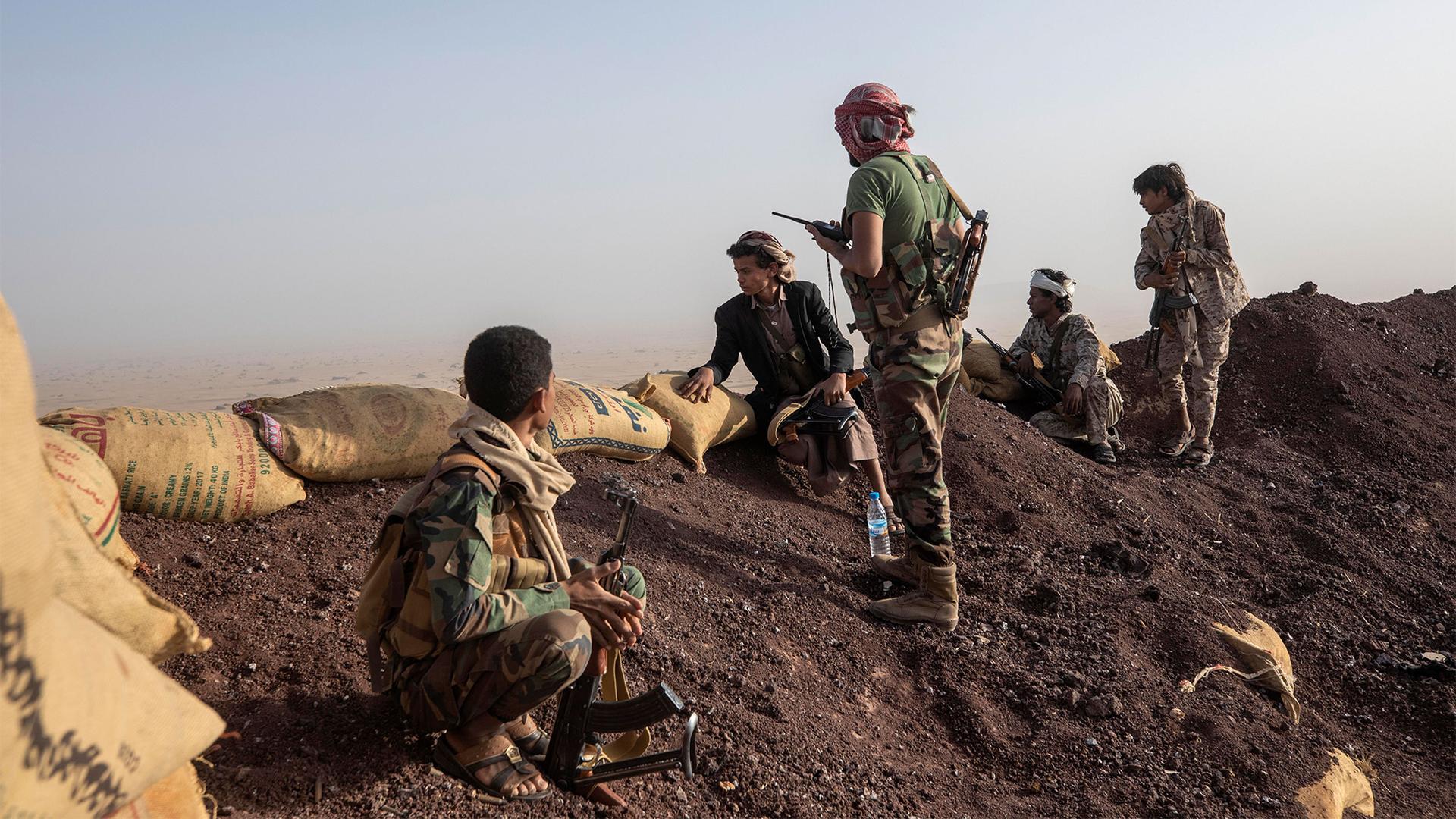After its yearslong bombing campaign, Saudi Arabia is now desperate to get out of Yemen, and ready to talk peace.
This signals a potential breakthrough in the long-simmering conflict in Yemen that has led to mass humanitarian concerns, as key ports to deliver aid have been blocked during the conflict.
Related: Labeling the Houthis as ‘terrorists’ might actually cost Yemeni lives
Yemen has been embroiled in a civil war since 2014, when the Houthis swept across much of the north and seized the capital, Sanaa, forcing the internationally recognized government into exile. A Saudi-led coalition entered the war the following year on the side of the government.
The Houthis have been attempting, since February, to capture Marib to complete their control over the northern part of Yemen. But they have not made substantial progress and suffered heavy losses amid stiff resistance from government forces aided by the Saudi-led coalition supporting them.
The war has killed more than 130,000 people and spawned the world’s worst humanitarian crisis.
Related: Yemen’s most stable city threatened by Houthi takeover
Nardwuar Dasari, a Yemeni American political analyst and nonresident scholar with the Middle East Institute in Washington, DC, joined The World’s host Marco Werman to discuss Saudi Arabia’s position and potential impact on Yemen.
Marco Werman: Why do you think Saudi Arabia wants to extricate itself from the war in Yemen? It’s been involved for six years. Why now?
Nardwuar Dasari: The Saudis are fatigued. They’ve been at war with the Houthis since early 2015, and they’ve been particularly stuck since the so-called agreement, which was brokered in December 2013 between the Houthis and [the then-President Abdrabbuh Mansur] Hadi government, which stopped the Emirati forces from retaking Hudaydah, the key seaport of Hudaydah, from the Houthis, which led the Emiratis to kind of scale down their operations in Yemen and decide that they’re not going to do any more offensive operations. So, the Saudis have been stuck since then because it was the Emiratis that were doing the ground operations, not the Saudis. And so, they’re just desperate to get out.
Officials from Saudi Arabia and the Houthi rebels are now talking. How and when did these talks start and where they are?
The Saudis have been talking with the Houthis since 2015. It’s not true that the Saudis have not been talking with the Houthis. They have been, and Houthis have been hosted by the Saudis in Saudi Arabia several times. But right now, the only thing that has changed is that the Saudis are too desperate to leave, and the Houthis know that the Saudis are too desperate to leave. So, that’s why the Houthis, their demands are very high. They they’re not giving any concessions in return.
My understanding is that the talks now between the Saudis and the Houthi rebels are centered around the Saudis lifting an air and sea blockade. In exchange, the Houthis would guarantee a truce. Is that essentially what’s on the table right now?
So, the Houthis are demanding that the airport, the Sanaa airport, and Hudaydah seaport be open completely and unconditionally before having any talks about any other thing, before talking about a ceasefire, or giving any other concessions. And the Houthis insist that these are humanitarian issues and must not be tied to the negotiations on the conflict and the ceasefire.
But, are you optimistic that these early steps to peace could actually bring about peace?
No, no, I mean, the Saudi-Houthi negotiations have nothing to do with peace. They’re not going to lead to peace. The thing is, what the Houthis and the Saudis are negotiating right now, and what the Houthis are demanding, is for the Saudis to leave Yemen unconditionally. They’ve said that publicly. They’ve published a vision on that. It’s very clearly articulated in their public statements that they want the Saudis to leave. They want, you know, all the seaports and airports to be open. And they want the Saudis to leave them to deal with Yemen.
So, what’s going to happen if the Saudis leave? Let’s assume that they reach an agreement and the Saudis leave unconditionally like the Houthis want. What’s going to happen is that the Houthis will continue their plan to capture the important city of Marib, which is the last government stronghold where 3 million civilians live, including 1.5 million IDPs [internally displaced persons]. And they’re going to continue to storm the rest of the country because they want to consolidate their control all over Yemen. So, we’re going to see a deescalation in Houthi attacks to Saudi, but we’re going to see a major escalation of the fighting internally.
How much of a role does a new White House administration play in this, or are they quietly pressuring Saudi to dial back its war in Yemen? And is this a scenario Biden bargained on?
I would say to some extent, yes. Biden made it very clear when he came to power that he wants the Yemen conflict to end and he will reduce the support for Saudi offensive operations. But that’s only part of the reason why the Saudis want to leave. They completely mismanaged the war and they don’t seem to have the competency to lead a war where they defeat the Houthis.
I should mention that Saudi Arabia’s also been holding talks with Iran, which supports the Houthis. Would you say Saudis’ willingness to talk is also part of greater efforts to improve relations with its regional rival?
I do think that the Saudis want to see some deescalation with Iran. I don’t think, though, that they are too naive to think that Iran will deescalate. So, I’m not sure that the talks between Iran and the Saudis will go far. But, it’s certainly interesting to see the Saudis even open to that.
This interview has been edited and condensed for clarity. AP contributed to this report.
